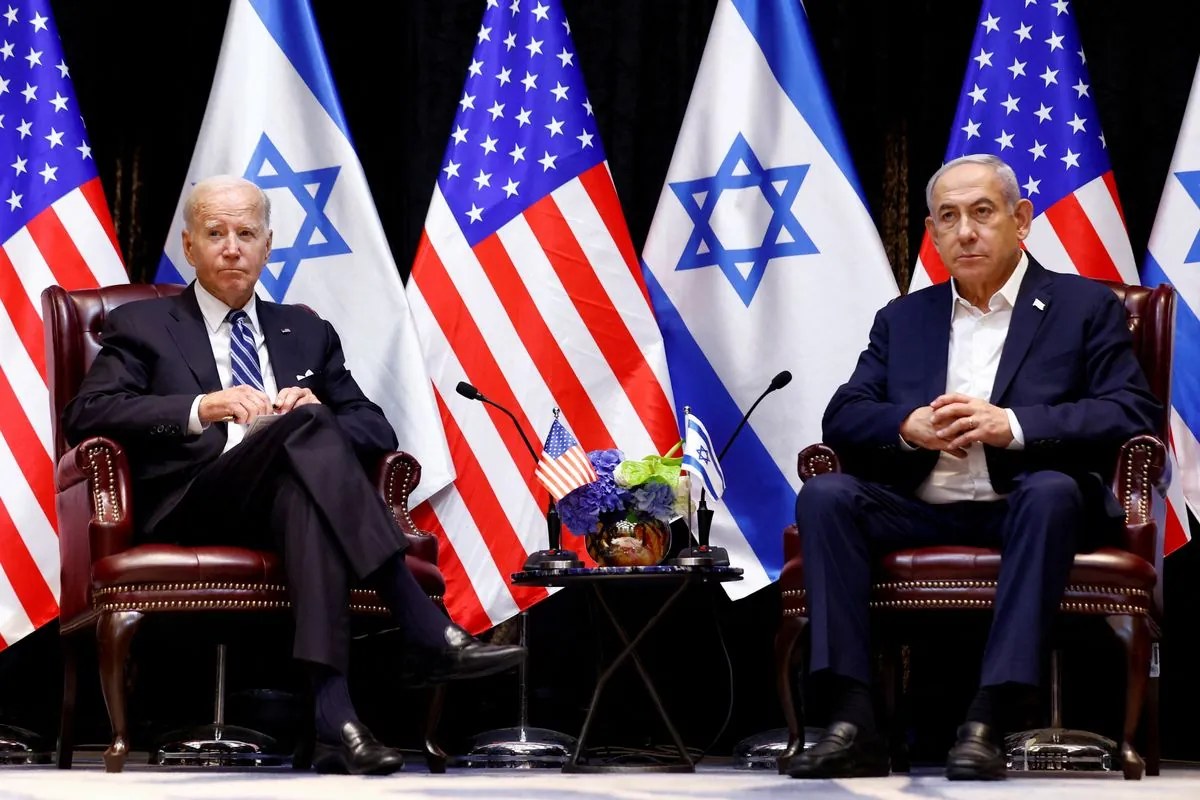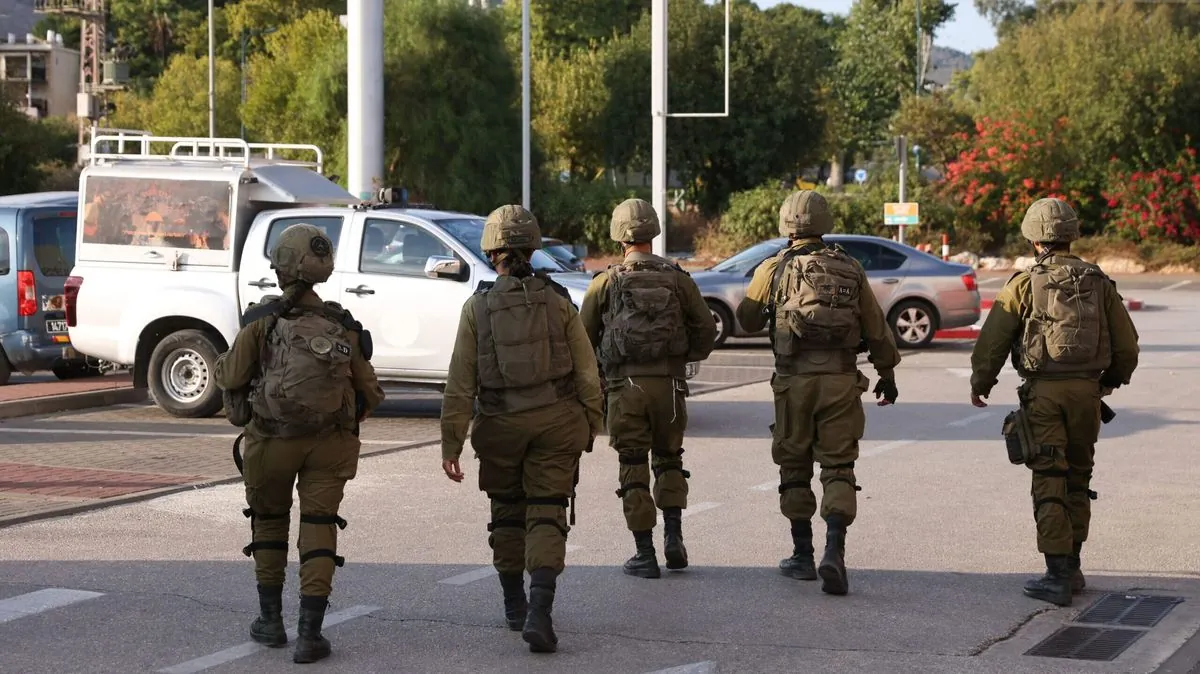Israel's Multi-Front Conflict: Diverging Views on Middle East Peace
Israel perceives a "seven-front war" with Iran, while the U.S. pursues diplomatic solutions. Differing perspectives on the conflict's scope and resolution strategies emerge as regional tensions persist.

The ongoing conflict in the Middle East has sparked divergent views between Israel and the United States regarding its scope and resolution. While Israeli officials perceive a "seven-front war" with Iran, U.S. diplomats are pursuing a multi-faceted approach to achieve peace in the region.
Benjamin Netanyahu, Israel's Prime Minister, recently described the situation as a "seven-front war" involving various Iran-backed groups across the Middle East. This perspective encompasses conflicts in Gaza, Lebanon, Yemen, Iraq, Syria, the West Bank, and with Iran itself. The Israeli viewpoint suggests a broader regional confrontation that extends beyond the Gaza conflict.
In contrast, the U.S. administration, led by President Joe Biden, is focusing on diplomatic efforts to de-escalate tensions. Their strategy includes brokering a cease-fire in Gaza, restoring calm along Israel's northern border with Lebanon, and pursuing a normalization deal between Israel and Saudi Arabia.

The differing approaches highlight a potential disconnect between the allies. While U.S. officials express optimism about achieving a cease-fire and even a normalization agreement between Israel and Saudi Arabia, Israeli leaders and analysts view the situation as part of a larger, more complex regional conflict.
Benny Gantz, a former member of Israel's war cabinet, recently emphasized the need to shift focus to Hezbollah in Lebanon, stating, "The time for action in the north has come." This statement underscores the Israeli perspective that the conflict extends beyond Gaza and requires a more comprehensive approach.
"Iran is fighting us on a seven-front war."
The International Telecommunications Union (ITU), a specialized UN agency, recently released its fifth Global Cybersecurity Index, revealing significant improvements in countries' cybersecurity readiness. This development is particularly relevant given the increasing importance of digital security in modern conflicts.
In the United States, personnel changes continue to shape the administration's approach to foreign policy and national security. Jacob Levine has been appointed as the senior director for climate and energy on the National Security Council, while Tarja Jaakola has become NATO's first Finnish assistant secretary-general for defense investment.
The ongoing debate about U.S. military presence in combat zones has resurfaced, with Vice President Kamala Harris stating that no U.S. troops are currently in active duty in combat zones. However, this claim has been met with skepticism, given ongoing U.S. military operations in countries like Syria, Iraq, Somalia, and Yemen.
As the conflict continues to evolve, the United States is reportedly finalizing plans to allow Ukraine to target an expanded set of locations on Russian soil using U.S.-provided weapons. This decision comes amidst allegations that Iran is supplying ballistic missiles to Russia for use in Ukraine.
The complex nature of the Middle East conflict and its potential for wider regional implications remains a subject of debate between U.S. and Israeli officials. As diplomatic efforts continue, the international community watches closely to see whether a peaceful resolution can be achieved or if the conflict will indeed expand into a broader regional confrontation.


































